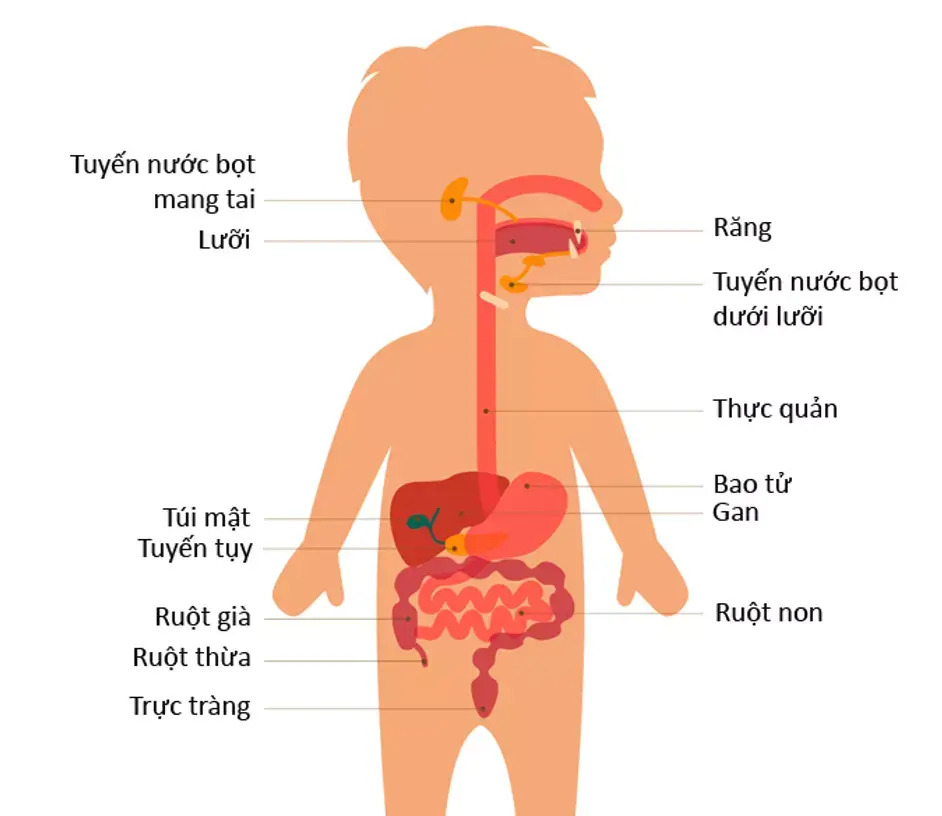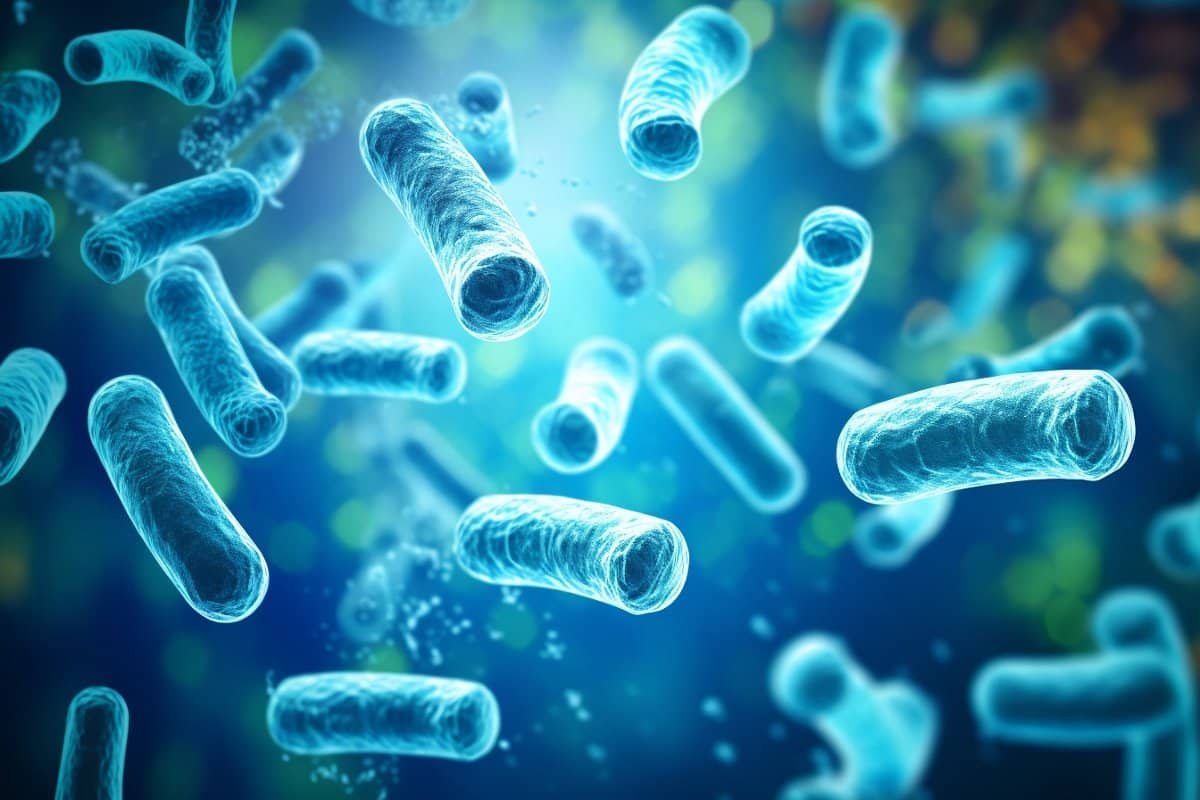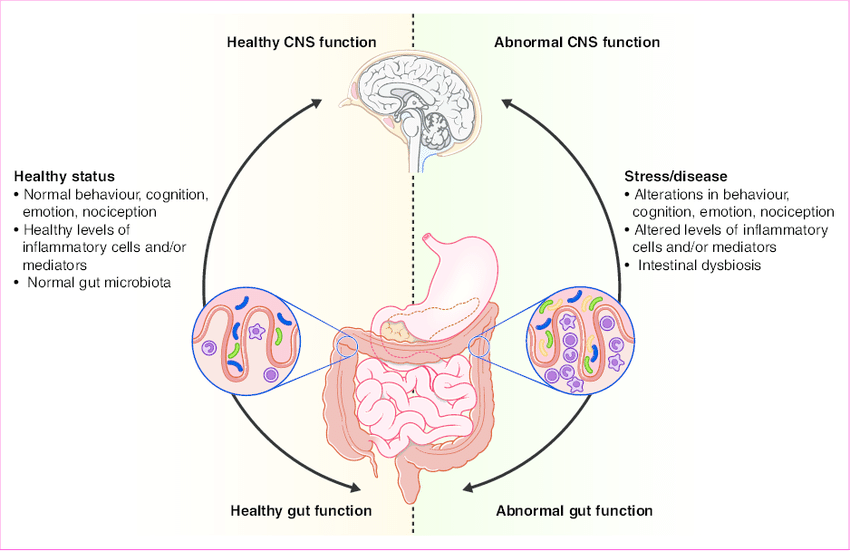 English
EnglishGut health – The foundation for your baby’s comprehensive development
The intestines are not only a place to process food but also act as the ‘heart’ of the immune system, determining the body’s ability to absorb nutrients and fight disease. A healthy digestive system is a solid foundation for the comprehensive development of children, both physically and mentally. However, the number of children with digestive problems is increasingly common, according to data from the National Institute of Nutrition, up to 47% of children who visit the doctor have symptoms of digestive disorders. This shows that parents need to improve their understanding of the role of intestinal health and apply appropriate care measures.
1. How does a child’s digestive system work?
The process of food digestion in children begins in the mouth, where food is ground by the teeth and mixed with saliva containing the enzyme amylase to break down starch. The food then moves down the esophagus and into the stomach. Here, the food is mixed with gastric juices containing hydrochloric acid and the enzyme pepsin, that breaks down proteins. Next, the food moves into the small intestine, where intestinal enzymes and bile from the liver continue to break down the food into nutrients. These nutrients are absorbed into the blood through the walls of the small intestine. Finally, the undigested food is passed into the large intestine, where water is absorbed and waste is formed.

Food metabolism begins in the mouth and ends in the rectum
The digestive system of young children is not fully developed and has many significant differences compared to adults. The child’s stomach is smaller, the esophageal sphincter is weaker and is located higher in the abdomen. At birth, the child’s stomach is round and horizontal. Over time, the stomach will grow and move down to a vertical position, similar to that of an adult. This process is usually completed by the time the child reaches the age of 7 to 11.
The intestine of a child is exceptionally long, 6 times the length of the body, while an adult is only 4 times. The intestinal mucosa of a child has many villi (intestinal hairs) and folds, along with a rich network of blood vessels, creating ideal conditions for nutrient absorption. However, this structure also creates a favorable environment for bacteria to invade and develop.
The intestinal microbiota of a newborn is extremely immature and easily unbalanced. This means that small changes in diet or the use of antibiotics can cause digestive disorders in babies. When a baby is born, the stomach and intestines are almost sterile for the first 8 hours. Then, bacteria begin to enter the baby’s digestive system through the mouth, respiratory tract and anus. These bacteria include many different types such as staphylococcus, pneumococcus, enterococcus, bifidus bacilli and acidophilus bacilli. By the third day, the microflora in the baby’s intestine has a drastic change. The development of good or bad bacteria depends on the baby’s diet, there is a difference between breastfed and formula-fed babies.
2. The role of gut health in child development
The intestinal microflora plays an extremely important role in the comprehensive development of children, from physical, mental to intellectual. A healthy digestive system with a balance of beneficial bacteria is a solid foundation for comprehensive development.
First of all, the intestinal microflora ensures that the digestion and absorption of nutrients take place effectively. Beneficial bacteria break down food, allowing the body to absorb essential nutrients such as vitamins, minerals and fatty acids. For example, Bifidobacterium Lactobacillus bacteria produce the enzyme lactase, which supports children’s digestion of lactose in milk, reducing the risk of lactose intolerance. At the same time, the balance of intestinal microflora maintains regular bowel movements, preventing constipation and other digestive disorders. Probiotics also produce lactic acid and antibacterial substances, inhibiting the growth of pathogenic bacteria, reducing the risk of diarrhea and other digestive disorders.

Lactobacillus is one of the strains of bacteria that are beneficial for the digestive system
Not only that, the gut microbiome is also a “shield” that protects the child’s immune system. About 70% of immune cells are located in the intestines. Gut bacteria play an important role in training and supporting the immune system, helping the system distinguish between beneficial and harmful bacteria. This “training” process ensures that the immune system works effectively, maintaining an ideal intestinal environment for beneficial bacteria to thrive. In other words, a healthy immune system creates conditions for a healthy gut microbiome, and vice versa.
In particular, the brain-gut axis, a two-way communication system between the brain and the intestines, shows the importance of the gut microbiome for the child’s brain and emotional development. Recent studies have shown that the gut microbiome may be related to many neurological and mental health disorders. Disorders associated with the brain-gut axis may include anxiety and depressive disorders, hyperactivity, neurodevelopmental disorders such as autism, Parkinson’s disease.

Two-way communication between the brain and the gut
Finally, a healthy digestive system ensures that children get all the nutrients they need for physical development. Probiotics stimulate the absorption of calcium and vitamin D, which are important for bone and tooth development. They also support production of vitamin K, which is essential for blood clotting.
3. Factors affecting children’s intestinal health
Diet plays a key role in building and maintaining a healthy gut microbiome in children. Breast milk is nature’s perfect food for infants and young children, allowing to nourish beneficial bacteria and boost the immune system. As children get older, adequate fiber from fruits and vegetables, vitamins and minerals from natural food sources are important to support the growth of beneficial bacteria and maintain a balanced gut microbiome. On the contrary, consuming too much processed foods, sweets, and fatty foods can create a favorable environment for the growth of harmful bacteria, causing an imbalance in the gut microbiome and leading to digestive problems.

Diet plays a key role in healthy gut microbiota in children
Personal hygiene and the surrounding environment also significantly affect children’s intestinal health. Unclean hands are the way to spread bacteria, viruses, and parasites that cause intestinal diseases. Dirty living environments create conditions for pathogens to develop and invade children’s bodies. This leads to digestive problems such as diarrhea, constipation, abdominal pain, and even serious intestinal infections.
Antibiotics, despite being an effective tool in treating infections, they also have negative effects on the intestinal microflora of children. Improper use of antibiotics can destroy both good and bad bacteria, leading to an imbalance in the intestinal microflora and causing digestive problems such as diarrhea or constipation. Therefore, the use of antibiotics in children should be done with caution and only when prescribed by a doctor.
Constipation is a common digestive problem in children and can affect their gut health. Chronic constipation can alter the gut microbiome, allowing harmful bacteria to grow and causing other digestive problems. To prevent constipation, make sure your child gets enough water, fiber and regular exercise.
In addition to the above factors, stress and tension can also affect a child’s gut health. Stress can alter bowel movements and cause digestive problems such as stomach aches or diarrhea. Genetics also play a role in determining the composition and balance of a child’s gut microbiota. Some children may also be genetically predisposed to digestive disorders.
4. How to take care of children’s intestinal health
Breast milk with optimal nutritional composition and natural antibodies is the ideal food source for infants and young children, allowing to build a healthy intestinal microflora. When children enter the weaning stage, supplementing foods rich in fiber from green vegetables and fruits is extremely important. Fiber not only promotes intestinal motility, prevents constipation, but also food for beneficial bacteria, enabling the balance of intestinal microflora. At the same time, ensuring food hygiene and safety, from the selection of ingredients to processing, that prevents intestinal infections, which are the cause of digestive disorders in children. A scientific diet that adheres to the above principles will create a solid foundation for intestinal health and comprehensive development of children.
On the other hand, supplementing probiotics plays an important role in maintaining the balance of the child’s intestinal microflora, thereby enhancing digestive health and the immune system. An appropriate probiotic product for your child’s age and specific health condition is essential to ensure effectiveness and safety. Different strains of probiotics provide different benefits, so consulting a specialist is an important step before starting any probiotic product. Proper and controlled probiotic supplementation optimizes the benefits for your child’s intestinal health, while minimizing the risk of unwanted side effects. It is important to note that probiotics are not a substitute for a balanced diet and healthy lifestyle, but rather a supplement to support.

Proper supplement of probiotics keeps your baby’s intestines healthy
To take care of your baby’s intestinal health comprehensively, Metacare Opti is a Medical Nutrition solution worth considering. Applying the breakthrough technology of Postbiotic probiotics with 30 billion probiotics along with HMO and fiber, Metacare Opti helps improve the digestive system, prevent constipation, and enhance the child’s resistance. The optimal nutritional formula, supplemented with 24-hour colostrum from the US along with 60 nutrients and whey protein, lysine, zinc, allows children to easily absorb, stimulates appetite, thereby gaining stable weight. In particular, the trio of nutrients calcium, K2, D3 from the US, enables optimization of the calcium absorption process, promoting outstanding height growth in children. Metacare Opti is clinically proven to help 83.3% of children using milk have a stable digestive system, reduce the rate of constipation by 20% and reduce the rate of diarrhea by 28.3%. In addition, Metacare Opti is produced according to advanced technology processes, with modern equipment to control quality synchronously and continuously, certified to comply with food safety standards of international health organizations. This will be the optimal health care solution for your babies.
The living environment plays an important role in maintaining the balance of intestinal microflora in children. Maintaining good hygiene, especially washing hands regularly before eating and after using the toilet to prevent the invasion of harmful bacteria into the intestines. A clean living environment also reduces the risk of exposure to pathogens, protecting the immature digestive system of children.
Stress has been shown to have a negative impact on the gut microbiota through neuroendocrine regulation mechanisms. When children are stressed, stress hormones affect the functioning of the digestive system, leading to digestive disorders. Therefore, creating a comfortable living environment that minimizes stress for children is extremely necessary. Parents should create conditions for children to play, exercise, get enough sleep, and limit exposure to stress factors. This not only protects intestinal health but also contributes to the comprehensive development of children.

Personal hygiene limits the penetration of pathogens into children
Conclusion: Gut health is an indispensable factor for the comprehensive development of your baby. Scientifically caring for your baby’s gut from an early age establishes a solid foundation for healthy development of your babies. A balanced diet, healthy lifestyle, and probiotic supplements are effective solutions. Let’s accompany your child on their journey to adulthood by prioritizing their gut health.
